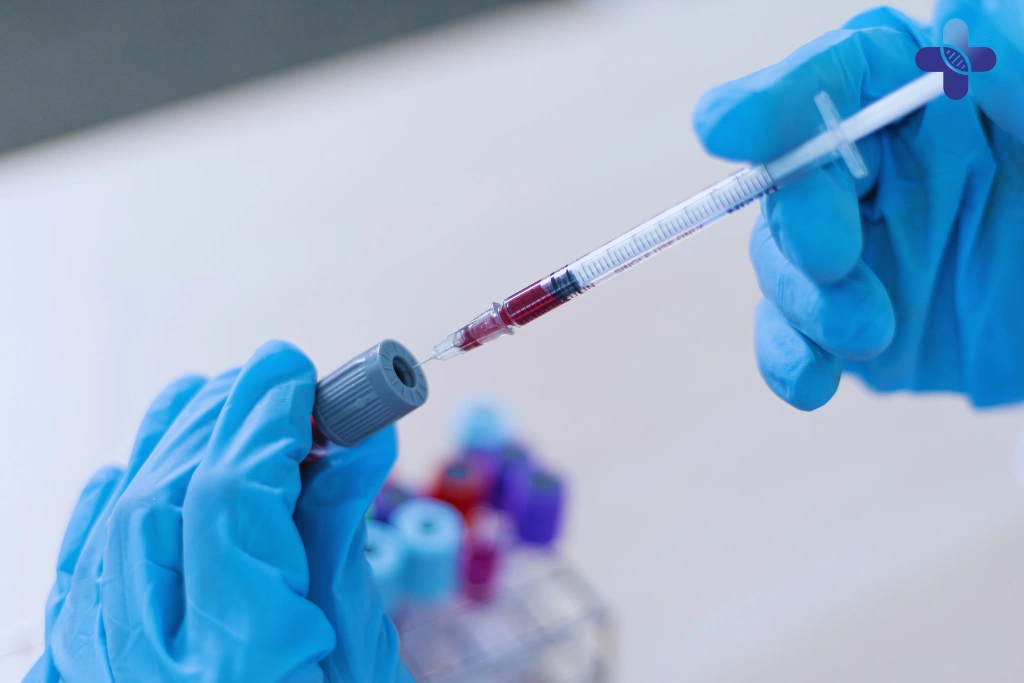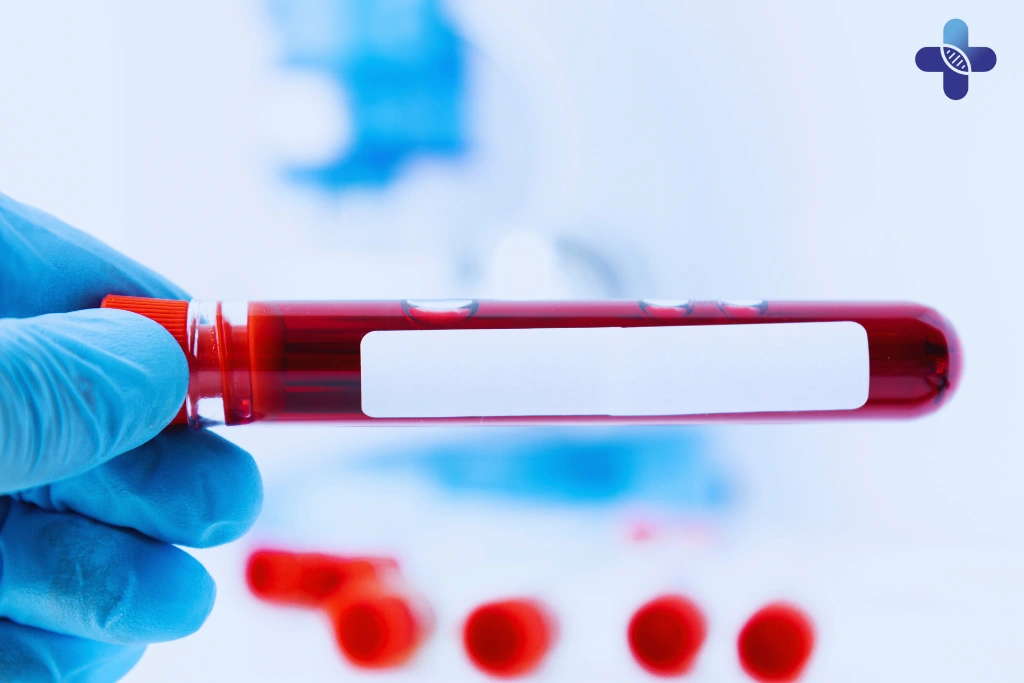Living in Bali—whether for a few weeks or several months—often comes with a lifestyle of freedom, connection, and spontaneity. But in between beach days, coworking sessions, and casual dating, how often do you pause to check in on your sexual health? Many tourists, expats, and digital nomads delay or skip STD testing simply because they’re unsure when it’s needed. In this guide, we break down how often you should get tested in Bali based on your lifestyle, helping you stay safe, informed, and confident—wherever your Bali journey takes you.

How Often Should You Get Tested for STDs While in Bali?
Staying on top of your sexual health while in Bali isn’t just a responsible choice—it’s a smart one. Many infections, including sexual transmitted diseases (STDs) in Bali such as chlamydia or gonorrhea, don’t show obvious symptoms at first, which means you could unknowingly carry and transmit them. Whether you’re enjoying a short holiday in Seminyak, living long-term in Sanur, or building a digital nomad life in Jimbaran, regular testing helps protect not just yourself, but also your partners. At Life Everyouth Clinic Bali, we believe that awareness leads to confidence—and peace of mind.
How often you should get tested depends on your personal behavior, risk level, and relationship dynamics. If you’re in a committed monogamous relationship and have both tested negative, annual testing may be sufficient. However, if you’re dating casually, engaging with multiple partners, or have had any unprotected encounters, testing every 3 to 6 months is strongly advised. For individuals in high-risk groups—including MSM, sex workers, or anyone with frequent partner changes—routine screening every 3 months is highly recommended. In this article, we’ll help you understand when, why, and where to get tested for STDs in Bali, so you can fully enjoy the island while staying healthy, safe, and informed.
Why Routine STD Testing Matters – Even on Vacation
Living in Bali comes with a beautiful sense of freedom—sunny beach days, social nights, and the thrill of meeting people from around the world. But amid the island’s laid-back vibe, the importance of sexual health is often overlooked. At Life Everyouth Bali, we’ve seen how easy it is for travelers, digital nomads, and even long-term expats to delay STD testing simply because they feel fine or don’t notice symptoms. The reality? Risk doesn’t disappear just because you’re on vacation. Even one unprotected encounter or a forgotten condom can result in exposure to infections like gonorrhea, chlamydia, syphilis, or HIV—many of which won’t show symptoms right away. That’s why routine screening at a trusted medical clinic in Bali isn’t just for emergencies—it’s an essential part of living responsibly in paradise.
You can’t rely on how your body feels to know if you’re safe. STDs often develop silently, progressing without pain, itching, or visible signs—especially in the early stages. By the time symptoms do show, complications may have already developed. This is particularly true for conditions like chlamydia or HIV, which can remain dormant yet still be transmitted to others. At Life Everyouth in Sanur and Jimbaran, we offer confidential and accessible testing designed to remove fear, shame, or hassle from the process. Whether you’re here for a short stay or building a life on the island, getting tested regularly helps protect your health and the health of those around you. Being in Bali shouldn’t mean pressing pause on your well-being—it should be a reason to stay proactive.
Factors That Affect How Often You Should Get Tested
How often you should get tested for STDs largely depends on your sexual activity and the number of partners you’ve had. The more partners you engage with, the higher your chances of exposure—even if protection is used. Each new partner brings a different health background, and relying on assumptions can be risky. At Life Everyouth Clinic Bali, we recommend getting tested every 3 to 6 months if you’re sexually active with multiple partners, whether you’re in Bali for a few weeks or living here long-term as an expat or digital nomad.
Condom use is another important factor. While condoms significantly reduce the risk of transmission, they don’t eliminate it entirely—especially when it comes to infections like herpes, syphilis, or HPV, which can spread through skin contact. Accidental breakage, slippage, or inconsistent use can also leave you vulnerable. Even with regular condom use, testing is still essential, particularly after unprotected encounters or changes in your sexual routine.
Your lifestyle and relationship dynamics also matter. If you’re in a committed, monogamous relationship and both partners have tested negative, yearly testing may be sufficient. But if there’s any uncertainty—such as a new partner, a recent breakup, or infidelity—it’s wise to get tested sooner. Life Everyouth Bali encourages proactive care, offering confidential and comprehensive STD testing in Sanur and Jimbaran for individuals who value their health and the well-being of their partners.

Suggested Testing Frequency for Different Scenarios
Tourists: Test Before You Travel Back Home
Many tourists enjoy brief but intense connections while in Bali, from romantic flings to one-time encounters. Even if the moment felt safe, it’s difficult to know someone’s health status without proper testing. If you’ve had a new or unprotected partner—even just once—getting tested before heading home is a smart, responsible move. At Life Everyouth Bali, we provide quick and discreet STD testing near major tourist hubs like Sanur and Jimbaran, so you can leave the island with peace of mind.
Digital Nomads: Test Every 3 to 6 Months
Life as a digital nomad in Bali often means frequent socializing, casual dating, and flexible living arrangements. This dynamic lifestyle increases exposure risks, even when using protection. If you’re spending months in Bali while meeting new people regularly, a 3 to 6-month testing routine is strongly advised. Life Everyouth Bali supports the nomad community with friendly service, fast results, and zero judgment—so you can keep moving forward, safely and confidently.
Expats: Annual Testing or Sooner if Needed
For expats in long-term relationships or monogamous partnerships, testing once a year may be enough. However, life changes—like new partners, travel outside Bali, or infidelity—can shift your risk profile. It’s best to get tested sooner rather than later if anything changes. At Life Everyouth, we understand that expats value privacy, consistency, and convenience, which is why our clinics in Sanur and Jimbaran are trusted by Bali’s international community.
High-Risk Groups: Every 3 Months Recommended
If you belong to a higher-risk category—such as men who have sex with men (MSM), sex workers, or individuals with multiple casual partners—routine testing every 3 months is recommended by global health authorities. These groups are more likely to encounter asymptomatic infections that go undetected without regular screening. At Life Everyouth Bali, we provide supportive, confidential care for everyone, regardless of background or lifestyle. Testing here is about protection, not judgment.

What Tests Are Recommended for Frequent Travelers
Core Panel: HIV, Chlamydia, and Gonorrhea
For sexually active individuals—especially those with multiple or new partners—the core STD panel is a smart starting point. It includes HIV, chlamydia, and gonorrhea, three of the most common and high-risk infections.
HIV Testing with Rapid Results
HIV is a virus that can remain undetected for years while silently weakening the immune system. At Life Everyouth Clinic Bali, we provide Rapid HIV testing as part of our Basic STD Test Package, which also includes doctor consultation and clinical assessment. This is ideal for those looking for quick peace of mind, and is available for IDR 800,000 (LOCAL/KITAS) or IDR 1,040,000 (NON-KITAS).
Chlamydia and Gonorrhea PCR Screening
Chlamydia and gonorrhea are both bacterial infections that often cause no symptoms but can lead to serious complications if left untreated. For higher accuracy and earlier detection, we offer the Essential STD Test Package, which uses PCR testing to identify these infections precisely. This package is priced at IDR 1,488,000 (LOCAL/KITAS) and IDR 1,988,000 (NON-KITAS)—a recommended option for those who want targeted yet thorough testing.
Advanced STD Testing Packages
For those seeking broader screening or who fall into higher-risk categories, Life Everyouth Bali offers more extensive panels covering viral and bacterial infections beyond the core three.
Syphilis, Herpes, and Hepatitis B
Syphilis often starts with painless sores, while herpes (especially HSV-2) may remain asymptomatic yet transmissible. Hepatitis B, a virus that affects the liver, is also a concern for sexually active individuals. These are included in our Comprehensive STD Test Package, along with Rapid HIV testing, and is available for IDR 1,588,000 (LOCAL/KITAS) or IDR 2,088,000 (NON-KITAS).
Bacterial Infections: Mycoplasma, Ureaplasma, Trichomonas
If you’ve experienced recurring urogenital symptoms, discomfort after sex, or suspect exposure through multiple partners, the Advanced Sexual Health STD Test Package is ideal. It screens for Ureaplasma Urealyticum, Mycoplasma Hominis, Mycoplasma Genitalium, Chlamydia Trachomatis, Neisseria Gonorrhoeae, and Trichomonas Vaginalis—all using PCR methods. This advanced screening is priced at IDR 2,388,000 (LOCAL/KITAS) or IDR 3,188,000 (NON-KITAS).
Full Coverage with Premium Intimate Care
For complete clarity, our Premium Intimate Care STD Test Package combines everything: advanced bacterial panels (PCR), Rapid HIV, syphilis, herpes, and hepatitis B screening. It’s our most comprehensive offering, recommended for those with recent high-risk exposure or for peace of mind in a new relationship. Pricing is IDR 3,588,000 (LOCAL/KITAS) and IDR 4,688,000 (NON-KITAS).
By choosing Life Everyouth Clinic Bali, you gain access to professional, confidential sexual health care—without the wait, confusion, or stigma often associated with STD screening. As a trusted destination for STD Testing in Bali, our clinics in Sanur and Jimbaran serve both local and international clients with fast turnaround times, multilingual staff, and a range of test packages tailored to different lifestyles and risk levels. Whether you’re unsure which panel to choose or simply need peace of mind, our team will guide you with empathy and expertise—so you can stay healthy, informed, and confident during your time in Bali.

Conclusion How Often Should You Get STD Tested in Bali? Tips for Tourists & Expats
Regular STD testing in Bali isn’t just for emergencies or those experiencing symptoms—it’s a vital part of responsible, proactive living for anyone enjoying the island’s lifestyle. Whether you’re a traveler on a short romantic getaway, a digital nomad navigating new social circles, or an expat building deeper roots, knowing your status is an empowering act of self-care. Testing every 3 to 6 months, or sooner depending on your circumstances, helps prevent complications, reduce transmission, and protect your peace of mind. Health doesn’t take a holiday, and neither should your commitment to it.
At Life Everyouth Clinic Bali, we make sexual health easy to manage—with discreet service, clear guidance, and fast, accurate results. From basic to advanced test panels, we tailor our care to suit your needs and lifestyle. With clinics in Sanur and Jimbaran, multilingual staff, and pricing for both locals and international guests, we’re here to ensure your time in Bali is not only unforgettable—but safe, respectful, and health-conscious. Your journey deserves clarity. Let us help you take the next step with confidence.
Frequently Asked Questions (FAQ) How Often Should You Get STD Tested in Bali? Tips for Tourists & Expats
Is yearly STD testing enough for people in Bali?
Yearly testing may be sufficient for individuals in long-term, monogamous relationships where both partners have tested negative and have no new exposures. However, if you’re dating casually or have multiple partners throughout the year, this frequency is not enough to detect early infections or protect your partners. Many STDs, such as chlamydia or HIV, can remain asymptomatic for months. At Life Everyouth Clinic Bali, we recommend testing every 3 to 6 months for those with an active sexual lifestyle to ensure early detection and peace of mind.
Should digital nomads in Bali get tested more frequently?
Yes, especially if they’re socially active and casually dating while living abroad. Digital nomads often meet new people through travel, coworking hubs, or social events, which naturally increases exposure risk—even with protection. Testing every 3 to 6 months allows you to stay ahead of silent infections, many of which don’t show symptoms in early stages. With clinics in Sanur and Jimbaran, Life Everyouth makes it easy to fit regular testing into your Bali routine.
Do I need to get tested after every partner?
Ideally, yes—especially after any unprotected or spontaneous encounter. While testing after every partner may not always be practical, the safest approach is to test before entering a new sexual relationship to ensure both parties are healthy. This reduces the risk of transmission and builds trust. STD Testing in Bali is accessible, fast, and discreet at Life Everyouth Clinic, so making it part of your personal routine is both responsible and empowering.
How do I know if I’m high-risk for STDs?
You may be considered high-risk if you’ve had multiple partners, inconsistent condom use, a recent STI, or if you’re part of groups such as MSM (men who have sex with men) or sex workers. High-risk individuals are more likely to carry or contract STDs without symptoms. Global health guidelines recommend testing every 3 months for these groups. At Life Everyouth Bali, we support high-risk communities with non-judgmental care and reliable diagnostics tailored to your needs.
Can I skip testing if I have no symptoms?
No, because many STDs—including chlamydia, gonorrhea, and HIV—are asymptomatic in their early stages. This means you could carry and transmit infections to others without even knowing it. Relying on symptoms alone is risky and can lead to complications or delayed treatment. Regular screening at a trusted medical clinic in Bali like Life Everyouth helps detect these infections before they escalate.
What tests are included in a standard STD panel in Bali?
A standard panel at Life Everyouth Clinic Bali typically includes Rapid HIV, gonorrhea, chlamydia, and syphilis testing, depending on the selected package. These cover the most common infections affecting sexually active individuals. We also offer medium, advanced, and premium packages that include testing for trichomonas, candida, herpes, hepatitis B, ureaplasma, and mycoplasma using PCR technology. You can choose based on your risk level, symptoms, or lifestyle, and our team will assist in finding the best fit.
How long does STD testing take in Bali?
The testing process itself is quick, often completed within 15 to 30 minutes including consultation. Results from rapid tests like HIV can be available in under an hour, while PCR or serology-based tests typically take 24 to 48 hours. At Life Everyouth, we notify you securely and privately as soon as your results are ready. Our goal is to keep your experience smooth, fast, and completely confidential.
Is testing expensive in Bali?
Compared to many Western countries, STD Testing in Bali is quite affordable—even for comprehensive packages. At Life Everyouth Clinic, pricing starts from IDR 800,000 for basic testing and ranges up to IDR 4.6 million for our most inclusive panel. We offer clear pricing for both LOCAL/KITAS and NON-KITAS clients, so you always know what to expect. Considering the cost of untreated infections, regular testing is an investment in your health.
Can tourists access STD testing easily in Bali?
Yes, tourists are welcome and frequently tested at Life Everyouth Bali with no need for local ID or insurance. Our clinics are located in tourist-friendly areas like Sanur and Jimbaran, and we accept both walk-ins and appointments. All services are offered in English and handled with professionalism, so international travelers can feel at ease. Whether it’s your first time in Bali or your tenth, we make it simple to prioritize your health.
Where is the best place to get tested in Bali?
Life Everyouth Clinic is highly rated for STD Testing in Bali, thanks to our experienced team, clean facilities, and tailored test packages. With branches in Sanur and Jimbaran, we’re easy to reach from major tourist zones and expat neighborhoods. We combine international-standard care with local accessibility, making it easy for you to take action without delay. When you’re in Bali, your sexual health deserves the same attention as any other part of your well-being—and we’re here to support that.
